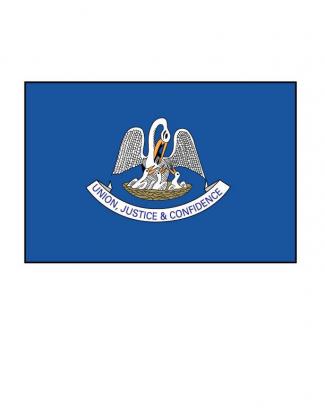
Louisiana residents may not be as anti-tax as conventional wisdom suggests, according to an LSU survey, but most residents also believe the state can and ought to reduce spending by eliminating government inefficiencies.
A sizable majority of those surveyed – 71 percent — believe lawmakers should use a combination of tax increases and spending cuts to solve the state’s reoccurring budget shortfalls, LSU’s Reilly Center for Media and Public Affairs Louisiana Survey 2017 found.
Researchers found tax hikes must be tied to specific areas, like higher education, elementary and secondary education and health care, to gain support.
But which taxes should lawmakers increase when they go into session April 10th?
“That’s the part where the public is not offering our public leaders, our policy-makers, a clear path,” said LSU Public Policy Research Lab Director Michael Henderson, co-author of the report.
When asked whether the state should lower rates and expand the base for personal income taxes, residents are split, and most oppose doing the same for sales taxes. Plus, 64 percent believe the government can find inefficiencies and, when pressed, most favor spending cuts over tax increases, Henderson said.
But the clearest picture for lawmakers is in the gasoline tax, according to the survey: A majority of Republicans and Democrats support increasing the state’s gas tax by up to 15 cents, and an overall majority support increasing it by 20 cents, with Democrats favoring a tax increase at that level more than Republicans.
Gov. John Bel Edwards is scheduled to release his tax agenda Wednesday, ahead of lawmakers’ expected overhaul of the tax code during the session this spring. A gasoline tax hike will almost certainly be on the table, as well.
The LSU survey, released Monday, also found most people do not support cutting TOPS, which provides in-state students free tuition for meeting mid-level academic benchmarks.
But the public does favor raising academic requirements or imposing an income cap on the program.
The survey of 1,012 respondents, which carries a margin of error of 3.1 percentage points, provides a general sense for what the public wants lawmakers to do with taxes and budgeting—they are willing to pay more for specific services, but believe the government can also find ways to reduce wasteful spending. The 2017 Legislature convenes April 10.
Lawmakers last year struggled to find areas in government to cut to come up with more than a billion dollars in needed money to fund state government. Ultimately, the Legislature voted to raise the sales tax by a penny temporarily, among other things.
There was a sharp increase in the number of residents who thinks the sales tax is too high this year compared to last year, Henderson noted in the report.
